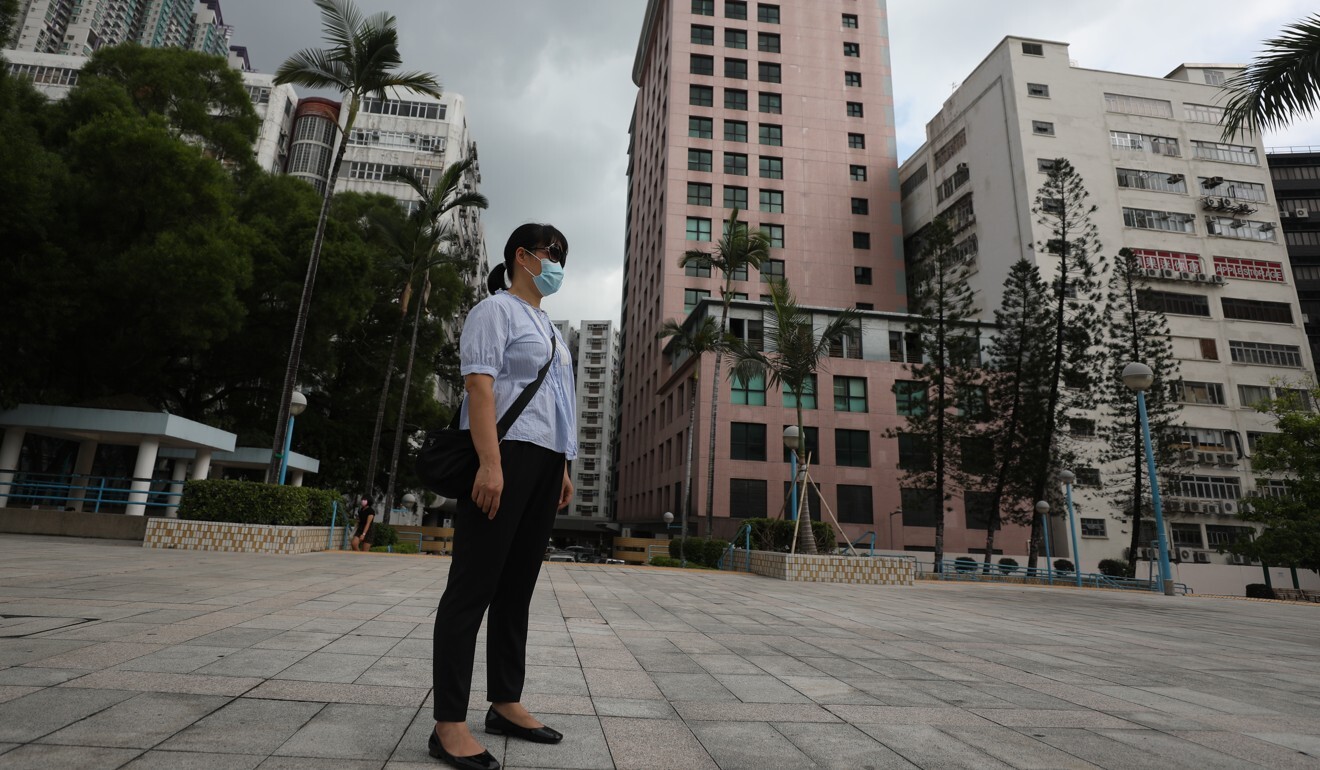
‘We did our part for Hong Kong’: families count down to moving into new homes in estate used as Covid-19 quarantine centre
- Disappointed by delay, residents add up cost of paying rent while waiting for new homes
- Three of five blocks still being used for quarantine likely to be returned to tenants in January
Housewife L.N. Siu, her husband and daughter were ecstatic when they were finally allocated a public housing flat at Chun Yeung Estate in Hong Kong last December, after waiting eight years.
Siu’s family must wait until next year to move in. It means continuing to pay rent of HK$4,500 (US$580) a month for their 200 sq ft subdivided flat, which is HK$2,000 more than what they will pay for their larger new home.
“We need to pay extra rent for a whole year, and it adds up,” said Siu, 45, whose husband, 46, is an air-conditioning technician and daughter is eight.

Siu is a member of a concern group formed by tenants of Chun Yeung Estate, which urged the government to return the flats to them sooner and waive their rent for a year as compensation for the extra expenses they have had to incur while waiting to move into their new homes.
“The government had a hard time finding places to set up a quarantine centre back then and they needed the estate,” she said. “We did our part to help Hong Kong, so I hope the government will understand our situation and help us too.”

01:55
China coronavirus: proposed Hong Kong quarantine building in Fanling gets fire-bombed
The flats at the estate make up more than a third of the targeted 13,000 new public flats in the 2019-20 financial year. The average waiting time for public housing in Hong Kong is 5½ years.
The government returned Blocks 4 and 5 of Chun Yeung Estate to tenants last month, and families have begun moving in.
My daughter has been asking me every day when we will be able to move in
Blocks 1, 2 and 3 have continued to be used as a quarantine centre and are expected to stop operating at the end of this month. After clearing and disinfection, they will be returned to the Housing Authority for inspection in October.
Tenants of these three blocks, including Siu and her family, are expected to move in as early as the end of January, and will receive an additional round of subsidies.

“My daughter has been asking me every day when we will be able to move in,” Siu said, adding that the girl is most excited about having a lift in the building.
“She will watch the Covid-19 press conference and clap when the number of cases drop, thinking we’ll be able to move sooner. She even told me to call the government and ask them to return the flat to us. She doesn’t understand that it’s not as simple as that.”
Families awaiting public flats used for quarantine say delay has real-life impact
Although relieved to know when they will get their flats, affected tenants said the delay meant a continued financial burden from paying rent and difficulty in sorting out their children’s school arrangements.
The government has compensated them for the delay, but housewife F.K. Lee, 43, said: “The HK$12,000 is barely enough to cover two months’ rent.”
Her family of four pays HK$4,600 a month for their 100 sq ft subdivided flat in Kwai Chung. She lives with her husband, 48, who is currently unemployed, and their two sons, aged nine and two.

The family will move into their flat next month. Lee, also a member of the tenants’ concern group, said the delay has complicated her children’s school arrangements.
“There were no more places at schools near Chun Yeung Estate. The only available option meant travelling 18 stops by bus to Ma On Shan,” she said.
She decided to keep her older son in his current school, but it means he must take three buses to get there. She will start looking for a kindergarten for her younger son this year.
Tenants’ group demands government return Fo Tan flats used as quarantine facilities
Tiffany Ho, 24, who works in marketing, spent 10 days at Chun Yeung Estate with her parents and domestic helper after her 18-year-old brother was confirmed to be infected with Covid-19 in March.
It was a stressful time for the family. “All we could think about was what was happening to my brother and when our next Covid-19 test would be,” she said.
Her brother recovered, no one else was infected, and they were allowed to return home early to complete the last four days of their 14-day quarantine.
Ho said she realised that when the estate became a temporary quarantine centre, it dashed the plans of tenants who had been waiting to move in. “That sacrifice must have taken a toll,” she said.
As for Siu, she is just counting down to moving into her new home soon.
“Some people may be concerned that their flats were occupied by others, but I’m going to treat it as a completely new place. That’s how I will think about it.”

